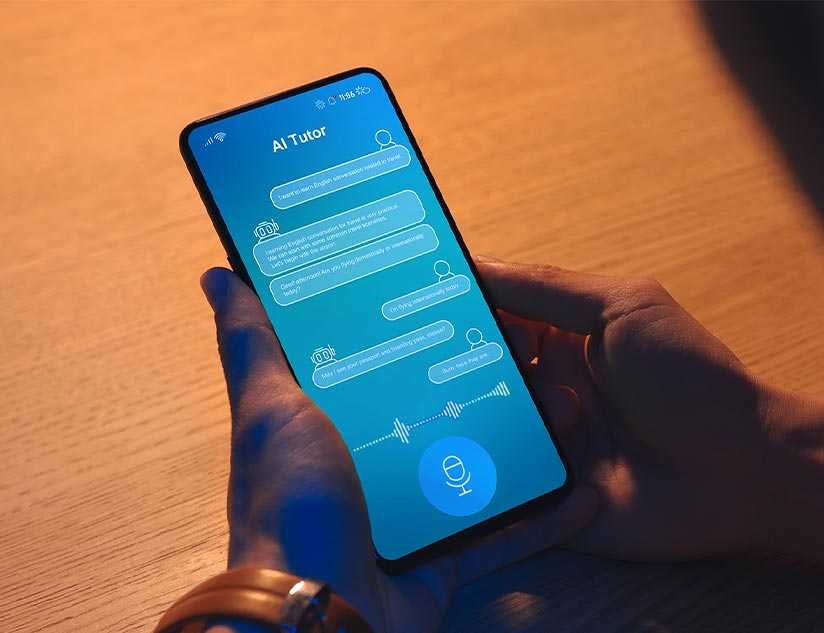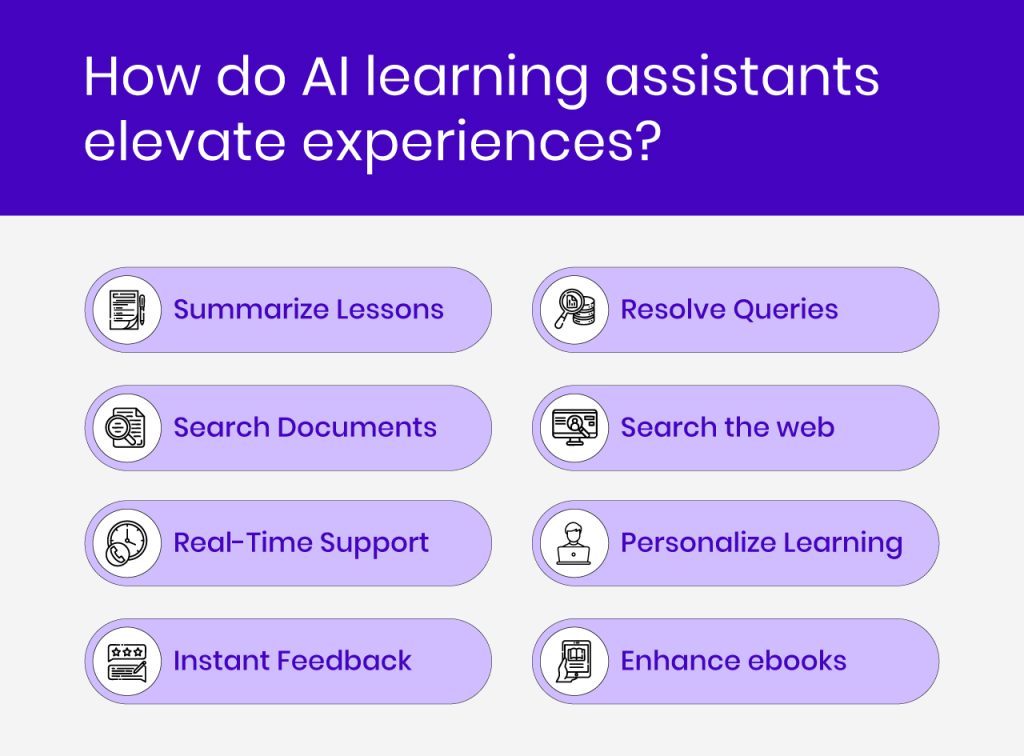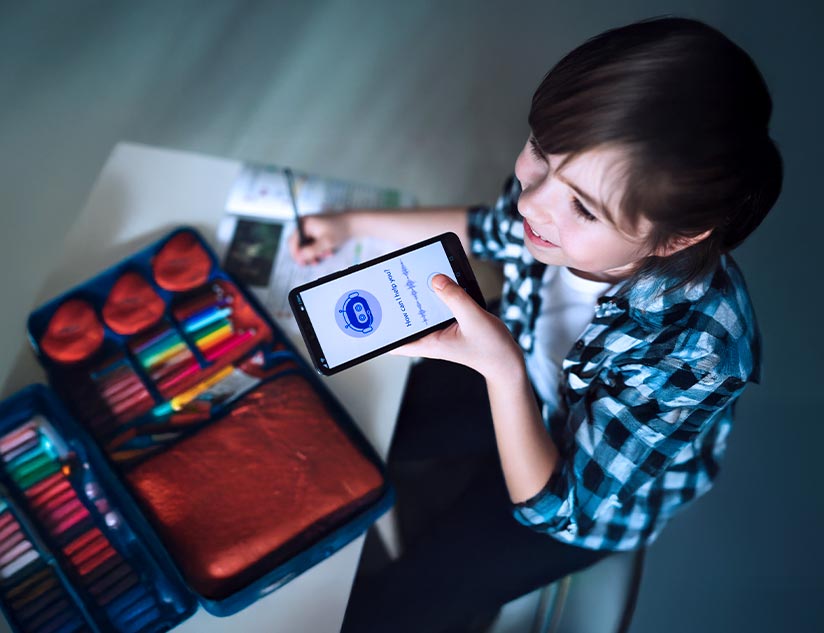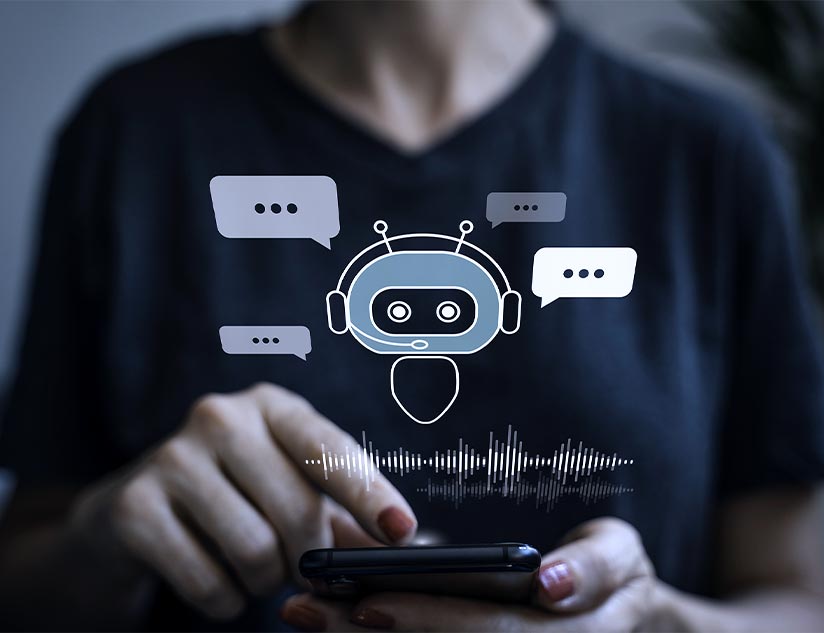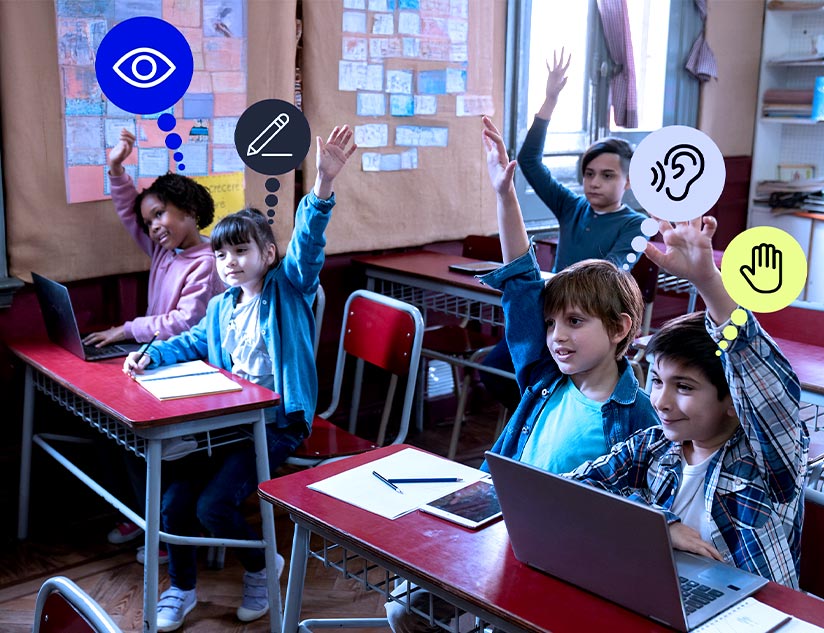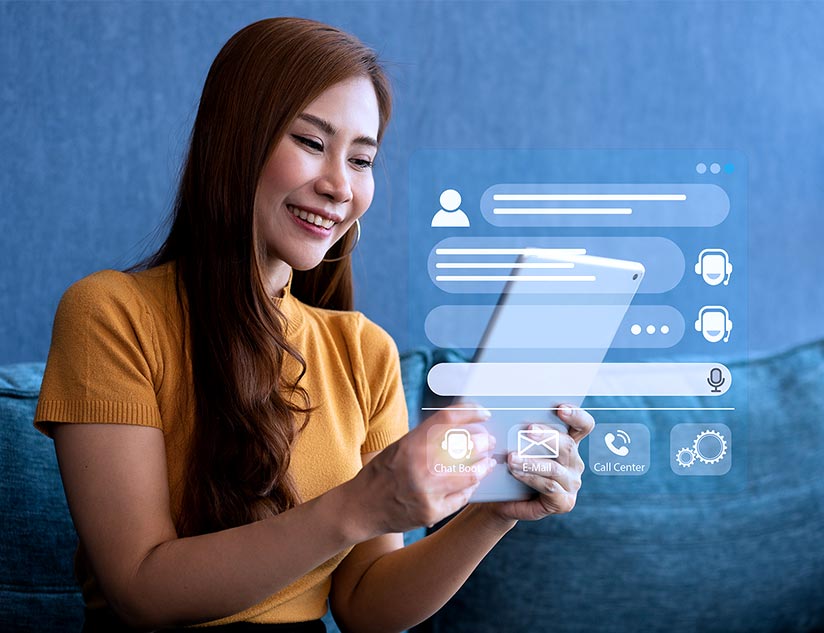Imagine having your smartphone nudge you with an intelligent question every hour for a week, ahead of that important client meeting? Well, you may have a million more tasks to do, but K-12 students usually have just one – learning. A 24/7 education partner to prepare them for exams, validate project ideas, and, of course, explain difficult concepts can be a game-changer in their learning journey. All this can be achieved with a single tool – an AI-powered chatbot. Teachers cannot be everywhere, all the time. That’s why we have AI chatbots. These turn into AI learning assistants, available 24/7 to drive student engagement, answer questions, solve problems, provide feedback, and keep learners motivated.
Engaging Students In and Outside the Classroom
AI-powered chatbots are extremely versatile. Teachers can integrate instructions into these AI learning assistants to improve pedagogy. For instance, if a student has a question, they can ask the chatbot without disrupting the class. The instant response keeps the student interested without detracting from class proceedings. MagicBox™’s KEA is just such a solution with a dedicated search tool to find relevant lessons and documents, and suggest learning materials to improve learning assimilation.
A Gallup survey, conducted in May 2024, revealed that 25% to 54% of K-12 students are disengaged from school experiences. Another national survey shows that about 50% of teens believe that they are not being challenged “in a good way” at school. An AI/ML-powered tool that learns and refines its responses as the student interacts with it can then offer relevant recommendations based on the student’s interests and respond to questions appropriately.
In addition, AI learning assistants offer real-time learning support in the absence of teachers and friends. This facilitates anytime, anywhere learning. From looking up key concepts to helping students memorize a poem, these chatbots can do it all. Along with instant query resolution, these 24/7 student engagement companions can offer bite-sized snippets of difficult concepts to make learning easier. They can also recommend alternative content formats, such as audio, video and interactive modules to drive greater engagement.
Personalized Learning Experiences
The Gallup survey also found that student engagement declines as they progress through K-12 levels. Schoolwork fails to positively challenge 51% of students, while 54% say it does not align with what they are good at. This highlights that students need education that pushes them forward, toward their learning goals. AI-powered chatbots understand how a student prefers to communicate and offer responses that work best for them the best. This may include giving a hint for a math problem or recommending an explainer video. Generative AI-based learning assistants can even use humor when necessary and suggest flashcards to improve retention. They pace instruction to ensure improved learning attainment.
There’s more to personalized learning than direct chatbot interactions and AI-powered digital learning platforms can help. They can track student activity, performance, and learning pace to determine the most suitable content formats and assessments to keep them engaged. Smart learning systems adapt learning paths, instruction mechanisms, practice assignments, and assessments to individual needs. AI-driven personalized learning fosters an environment where the student is adequately challenged and motivated, which keeps them engaged.
Learning Opportunities Beyond the Curriculum
The swipe left generation feels more comfortable with a chatbot than emails. AI-powered chatbots support autonomous learning with targeted study assistance. They also collect data to provide insights into the effectiveness of learning materials and classroom sessions. Chatbots can also perform administrative duties, such as rostering, handling common inquiries, and preparing individualized self-study plans. They can drive autonomous learning, creating more productive and effective digital education environments.
Generative AI-powered chatbots can also keep a check on students’ mental health and help build emotional resilience. They can support the acquisition of social-emotional skills, such as empathy, responsibility, self-awareness, respecting differences, etc. Most importantly, chatbots can educate students on responsible digital behaviors and ways to navigate privacy threats and identify suspicious actors. This can prepare them for the interconnected digital global future the world is heading toward.
What’s in it for K-12 Publishers?
The biggest advantage of AI-powered chatbots for K-12 publishers is improving student engagement on their digital learning platforms. With the automation of administrative tasks and tailored student assistance, they can also lower teachers’ workload manifold. K-12 publishers can leverage AI learning assistants as student support personnel at scale. It’s almost like employing an entire expert team to individually assist every learner and offer insights on improving their experiences. Data collected from students and teachers can guide forthcoming curriculum creation and instruction design initiatives. AI-powered chatbots can support content authoring as well. Leveraging cutting-edge technologies can boost platform engagement and position you ahead of the competition with district- and state-adoption-ready curricula.
Improved engagement and enhanced learning outcomes are the primary goals of every technology upgrade initiative. Discover how AI-powered learning chatbots can elevate your digital learning platform from the educational technology experts at MagicBox™.


